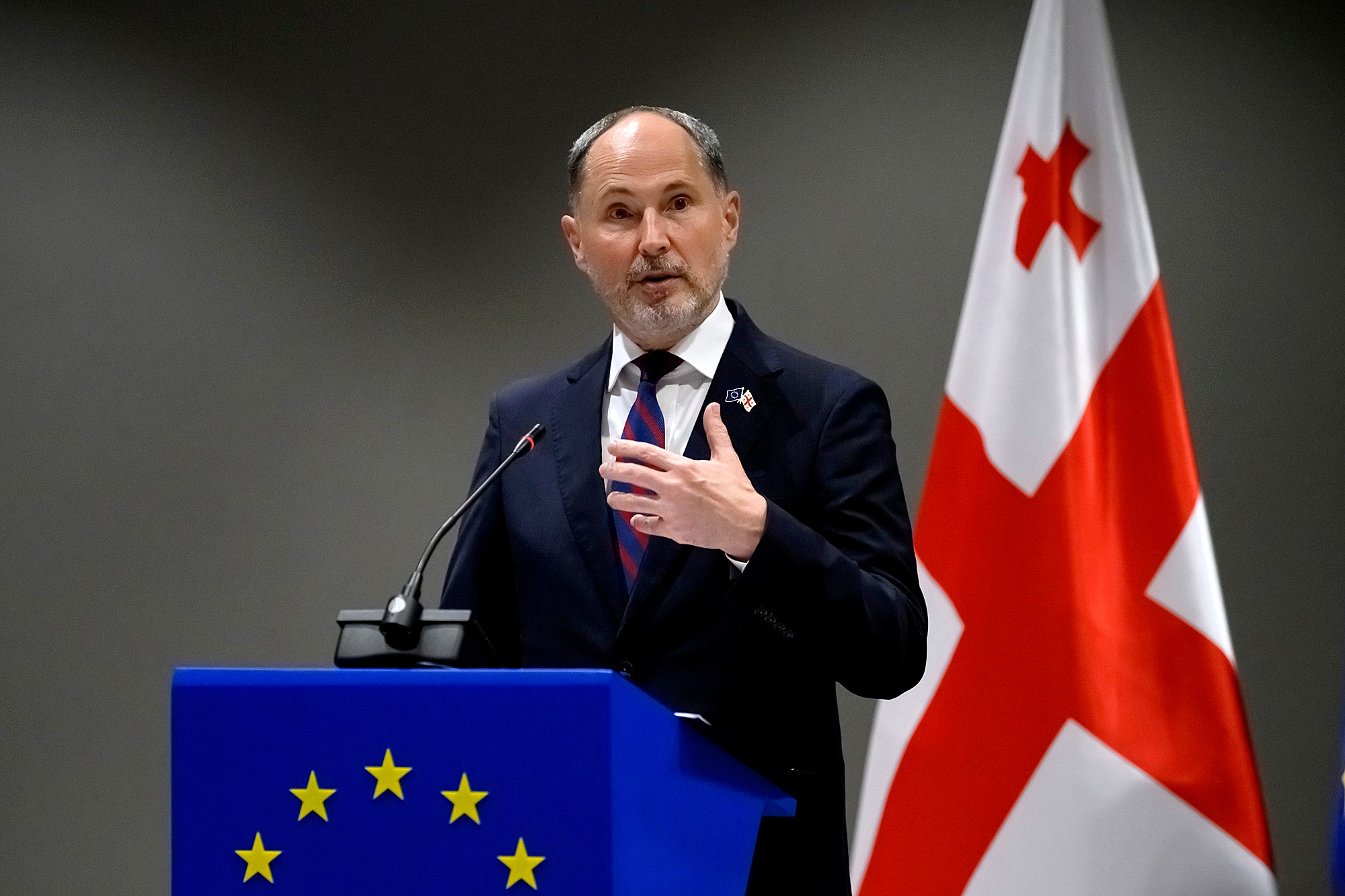William Dunbar @undrawbill: “My new Tushetian pardagi (originally there were two panels stitched together). This is not only a lovely weaving, but it also points to a specific time in the Caucasus—roughly 1910. 1/4 pic.twitter.com/ZAmtXhLI77
— Notes from Georgia/South Caucasus (Hälbig, Ralph) (@SouthCaucasus) November 4, 2024
Day: November 4, 2024
Applications are OPEN for the South Caucasus Study Visit Program!
📅 March 8-21, 2025
📍 George Mason University
⏳ Apply by: Nov 5, 2024Explore peacebuilding, conflict resolution, and media literacy!
Apply now: https://t.co/Ygo4WlrhZX#SouthCaucasus #CarterSchool #GMU pic.twitter.com/lZFnUXvDwt
— Carter School for Peace and Conflict Resolution (@GMUCarterSchool) November 4, 2024
Judge Vladimer Khuchua of the Tetritskaro Municipality confirmed that the secrecy of the vote had been violated in the October 26 elections, setting an important precedent for the case. This decision annuls the results of 30 precincts.
He is the first judge to rule in favor of the Georgian Young Lawyers Association’s (GYLA) complaint that the secrecy of the ballot had been violated during the elections because the ballots were so thin that it was possible to see on the other side of the paper who the person had voted for.
According to GYLA, the court examined several ballot papers from the Tsalka and Tetritskaro districts and confirmed that the visibility of ink on the other side of the paper constituted a violation of the secrecy of the ballot. The judge reportedly conducted an experiment of sorts, ordering that the paper and envelope be brought in for a mock vote.
On the grounds of violation of the secrecy of the ballot, the GYLA seeks the annulment of the results of all machine-voted precincts, representing a total of 2263 precincts and the absolute majority of votes. If this number of votes is annulled, the snap elections should be held.
“GYLA welcomes this decision and emphasizes its importance for ensuring democratic election process,” the watchdog wrote in its statement.
The ruling party Georgian Dream, with the number 41, was at the bottom of the ballot paper, while several opposition parties, in particular the numbers 4, 5, 9, were at the top and 25 in the middle of the ballot paper. According to the observers and ordinary citizens, the marker ink on the other side of the paper clearly indicated who the person was voting for, either the opposition or the ruling party.
Also Read:
- Thousands rally again in Georgia to protest Oct. 26 parliamentary election they say was rigged VOA Asia
- Greta Thunberg joins rally against Georgia’s government POLITICO Europe
- Georgian opposition stages new protest over election result Reuters
- ‘We need clarity more than ever’: Georgia’s murky elections and the West’s dilemma FRANCE 24 English

TI-Georgia reveals election rigging
The Georgian branch of the international anti-corruption organization Transparency International (TI-Georgia) has claimed that executing certain schemes to rig the October 26 parliamentary elections in Georgia would have been impossible without the involvement of various agencies. Therefore, the issue of accountability for the chair of the Central Election Commission (CEC), Giorgi Kalandarishvili, and other individuals must be raised, the agency said.
According to TI-Georgia, election administrations—the CEC and its subordinate commissions—played a crucial role in carrying out the fraud scheme, as trough their actions and inactions, they reportedly enabled the illegal and often criminal activities of the ruling Georgian Dream party.
Additionally, the joint monitoring mission of civil organizations, My Voice, has demanded the prosecutor’s office to initiate an investigation into alleged official misconduct by the heads of the election administration.
The charges concern criminal offenses such as official negligence or abuse of authority, obstruction of voters’ expression of will, violation of ballot secrecy, participation in elections using forged documents, election fraud, influencing voters’ decisions, and more.
In its statement, TI-Georgia also highlighted that during the pre-election period, reports consistently surfaced from various sources about the “confiscation” of ID cards from voters, particularly state employees. On election day, these IDs were allegedly used to vote on behalf of others. According to the organization, this was made possible, in part, due to negligence by CEC staff.
In turn, the My Voice organization claimed, among other things, that the CEC’s decision not to open additional polling stations abroad resulted in many being unable to participate in the election. The organization stated that this also facilitated the ruling party’s plan, allowing votes to be cast on behalf of those who were either not in Georgia or registered at different addresses.
TI-Georgia reveals election rigging


